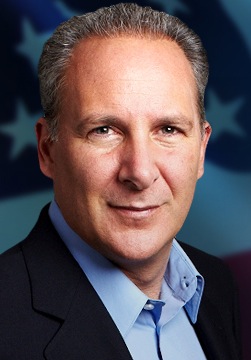Slower Growth Will Not Contain Inflation
When Ben Bernanke told Congress that moderating economic growth will likely contain inflationary pressures, Wall Street responded with its biggest one-day rally in nearly two years. Unfortunately for the Wall Street party boys, the Fed Chairman is likely wrong on both counts. In the first place the U.S. economy will not merely slow, but tumble, in the coming months/years, and rather than quelling inflation's fire, the inevitable recession will actually stoke its flames.
Bernanke's faulty logic assumes that inflation is somehow a by-product of economic growth. However, real economic growth emanates from increased productivity, which tends to hold prices down. Bernanke also dramatically underestimates the strength of the economic headwinds that will quash consumption and crush GDP growth. The rising costs of energy, adjustable rate mortgage payments, rents, insurance, food, and local taxes, combined with the reverse wealth effects associated with collapsing real estate prices will combine to produce a recession much worse than those seen in the last 30 years.
The argument that weaker growth will somehow cause consumer prices to rise more slowly focuses on the demand side of the price equation and ignores the supply side. Prices are a function of both supply and demand, and while slower growth, or an outright recessions, would certainly reduce demand, it would also work to reduce supply. The result could well be equilibrium prices that are higher during a recession than during an expansion.
As the U.S. economy contracts, the Federal budget deficit will grow and the perceived appeal of U.S. financial assets will be lost. As a result, foreign capital will flee at precisely the time it is needed the most. This will put additional upward pressure on interest rates, further increasing mortgage rates, suppressing real estate prices and consumer spending. More importantly, it will also cause the dollar to fall, making imports more expensive and pushing up raw material prices, thereby increasing production costs for domestic manufactures as well. As the dollar loses value relative to other currencies, foreigners will be able to outbid Americans for scarce consumer goods. As a result fewer products will be imported into the U.S. and more of America's domestic production will be exported. Therefore, despite the fact that financially strapped Americans will be consuming much less, they will be paying much higher prices for the privilege of doing so.
Interestingly, in response to a direct question from Congressman Ron Paul, Bernanke actually admitted that growth was unrelated to inflation. Unfortunately, the Congressman missed the opportunity to press Bernanke to explain the inconsistency between that admission and the implication in his prepared remarks that the Fed might pause in its rate hikes based solely on the expectation that a slowing economy would contain inflation.
Another interesting admission was Bernanke's forecasts that oil prices will stay around $75 to $80 dollars per barrel for the next several years. This is tantamount to an admission that the Fed's exclusion of energy prices from inflation measurements over the past several years was a mistake. Remember, the Fed's long held justification for favoring "core" inflation over "headline" was the belief that high oil prices were a temporary fluke.
Bernanke went on to say that he continues to favor the "core" because the futures markets were predicting stable oil prices. This makes no sense at all. Futures markets reflect forecasts, not facts, and have had a very poor track record predicting oil prices. However, if the futures markets are correct, then why not use the actual CPI, which will reflect the stable oil prices the futures markets are forecasting. If on the other hand the futures markets are wrong, and energy prices continue to rise, what is the justification for excluding them given the Fed's new position that high oil prices are here to stay?
The bottom line is that the Fed's perceived battle against inflation has already been lost, and the biggest casualty will be the American standard of living. Those who are hoping for an economic slowdown to contain inflation are in for a rude awakening. They will get a whole lot more than they bargained for when it comes to the former, and no relief whatsoever with respect to the latter.
Don't wait for the signs to appear. Protect your wealth and preserve you purchasing power before it's too late. Download my free research report on the powerful case for investing in foreign equities available atwww.researchreportone.com .

















